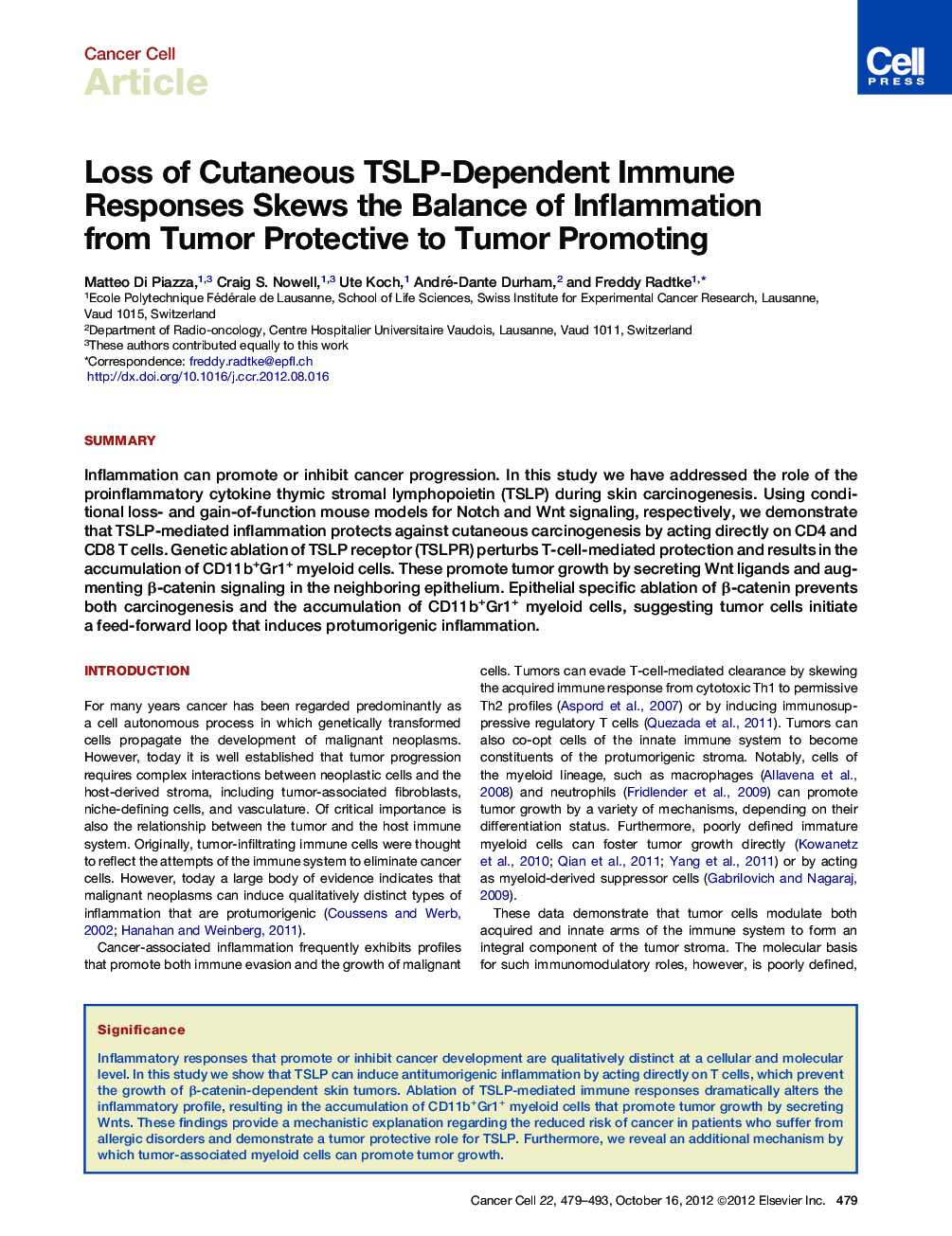| Article ID | Journal | Published Year | Pages | File Type |
|---|---|---|---|---|
| 2107110 | Cancer Cell | 2012 | 15 Pages |
SummaryInflammation can promote or inhibit cancer progression. In this study we have addressed the role of the proinflammatory cytokine thymic stromal lymphopoietin (TSLP) during skin carcinogenesis. Using conditional loss- and gain-of-function mouse models for Notch and Wnt signaling, respectively, we demonstrate that TSLP-mediated inflammation protects against cutaneous carcinogenesis by acting directly on CD4 and CD8 T cells. Genetic ablation of TSLP receptor (TSLPR) perturbs T-cell-mediated protection and results in the accumulation of CD11b+Gr1+ myeloid cells. These promote tumor growth by secreting Wnt ligands and augmenting β-catenin signaling in the neighboring epithelium. Epithelial specific ablation of β-catenin prevents both carcinogenesis and the accumulation of CD11b+Gr1+ myeloid cells, suggesting tumor cells initiate a feed-forward loop that induces protumorigenic inflammation.
Graphical AbstractFigure optionsDownload full-size imageDownload high-quality image (321 K)Download as PowerPoint slideHighlights► TSLP protects against skin cancer by acting directly on dermal T cells ► Protumorigenic CD11b+Gr1+ cells accumulate upon ablation of TSLPR signaling ► The development of skin tumors is β-catenin dependent ► Tumors establish a feed-forward loop by recruiting Wnt-secreting CD11b+Gr1+ cells
